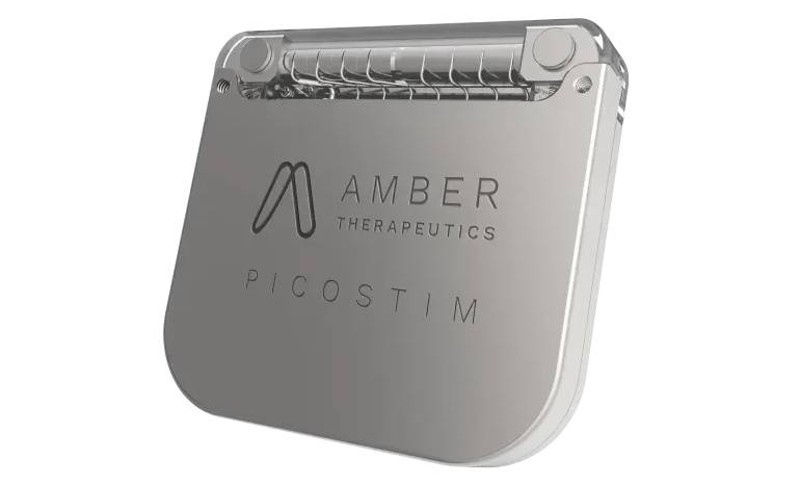A London MedTech is seeking to treat millions of women after raising almost £80 million in a Series A funding round.
Amber Therapeutics is developing a breakthrough adaptive neuromodulation therapy to treat mixed urinary incontinence (MUI).
Leading healthcare and technology investors in the US and UK backed the company in what is described as one of the largest Series A rounds ever in Europe for a medical technology company.
The round was led by New Enterprise Associates (NEA) as part of a syndicate of new investors F-Prime Capital, Lightstone Ventures, and Intuitive Ventures, alongside existing investors Oxford Science Enterprises (OSE) and 8VC.
“Securing this significant financing round from such a blue-chip group of US and UK investors is a huge validation of our therapy value proposition and the quality of the team we have built,” said Aidan Crawley, CEO of Amber Therapeutics.
“Amber can now execute the critical next phase of our strategy to take Amber-UI to US regulatory approval and fulfil our mission of making this breakthrough therapy available to the millions of women suffering from mixed urinary incontinence.”
Amber-UI is the first fully implantable adaptive neuromodulation therapy in clinical development for women with MUI, targeting the pudendal nerve through a novel, minimally invasive surgical procedure. The proceeds of the financing will be used to fund the development of Amber-UI through pilot and pivotal studies towards regulatory approval in the US.
Urinary incontinence (UI) is a debilitating medical condition that affects millions of women globally. Many of these women experience symptoms of both urge incontinence (urgent and uncontrollable bladder leaks) and stress incontinence (bladder leaks during physical activity or exertion). However, there is no singular therapy available to treat patients with these MUI symptoms.

Amber-Therapeutics-Amber-UI
“We believe Amber Therapeutics has the potential to become the first ever approved therapy for a significantly under-addressed patient population,” said Tiffany Le, principal at NEA.
“This technology is the culmination of decades of research, and we are proud to support such an innovative therapy that could provide an effective treatment for an often overlooked and under-discussed condition that affects so many women worldwide.”
Amber-UI runs on Amber’s Picostim System, an adaptive neuromodulation system able to both stimulate and sense physiological responses that is configurable to the individual’s needs and can respond dynamically to different events.
Amber-UI has the potential to be the first singular neuromodulation therapy for MUI that both directly regulates the urge to void the bladder and augment resistance to urine leakage caused by activities such as coughing or lifting, allowing for restoration of normal bladder function.
Planning for pilot studies in Europe and a pivotal trial of Amber-UI in the US is already underway following initial discussions with regulators and supported by highly promising preliminary results from a first-in-human study (AURA-2), announced in February 2024, confirming the safety and feasibility of both the surgical procedure and adaptive therapy as well as a strong efficacy signal. Results from the fully enrolled study are expected in the second half of 2024.
“This significant new round of capital is a huge testament both to Amber’s clinical and technological innovation and the team behind it,” said Heather Roxborough, head of HealthTech at Oxford Science Enterprises.
“We’re proud to have been part of Amber’s journey from the very beginning, having worked closely with the founders to help create the company and transform it into the UK’s only fully integrated developer and manufacturer of Class III active implantable devices.”
Le, Caroline Gaynor, partner at Lightstone Ventures and Kevin Chu, principal at F-Prime, have joined Amber’s board of directors, which also includes Liliane Chamas, principal at OSE.


